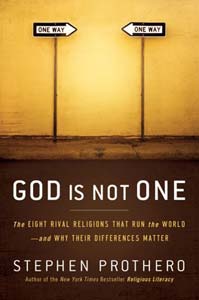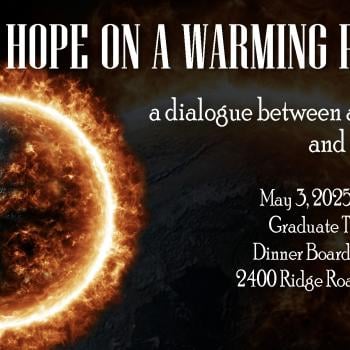
- In the introduction to GOD IS NOT ONE, Stephen Prothero states that the teachings of Huston Smith, Mohandas Ghandi, and the Dalai Lama-that all religions are fundamentally the same-are "dangerous, disrespectful, and untrue." Do you agree or disagree? Why?
- Prothero argues that acknowledging the differences between the world's religions will help interfaith dialogue and understanding. Do you agree? What are the advantages and challenges with Prothero's approach?
- In terms of their global influence, Prothero ranks Islam above Christianity and Judaism. Do you agree with this?
- God Is Not One explains each religious tradition according to its own unique diagnosis of what's wrong with the human condition (e.g. for Christianity, sin is the problem and salvation is the solution; for Buddhism, suffering is the problem and nirvana is the solution). Is this a helpful way to distinguish between religions? Do you agree or disagree with Prothero's categories?
- The chapter on Islam closes with "the nineteenth and twentieth centuries may have belonged to Christianity. The twenty-first belongs to Islam." It's a provocative statement. What is he implying?
- Do you think Prothero was right to include a religion like Yoruba, yet skip something like Sikhism?
- Do you agree that Atheism has a place in this book? Should it have gotten more attention? Or less?
- Prothero has stated that God Is Not One was written for "readers asking for a single book they could read to become religiously literate." Has he succeeded in that goal?
- What is at stake if we fail to become religiously literate? What are the political and social consequences if we don't understand other religious traditions?
10/5/2010 4:00:00 AM




